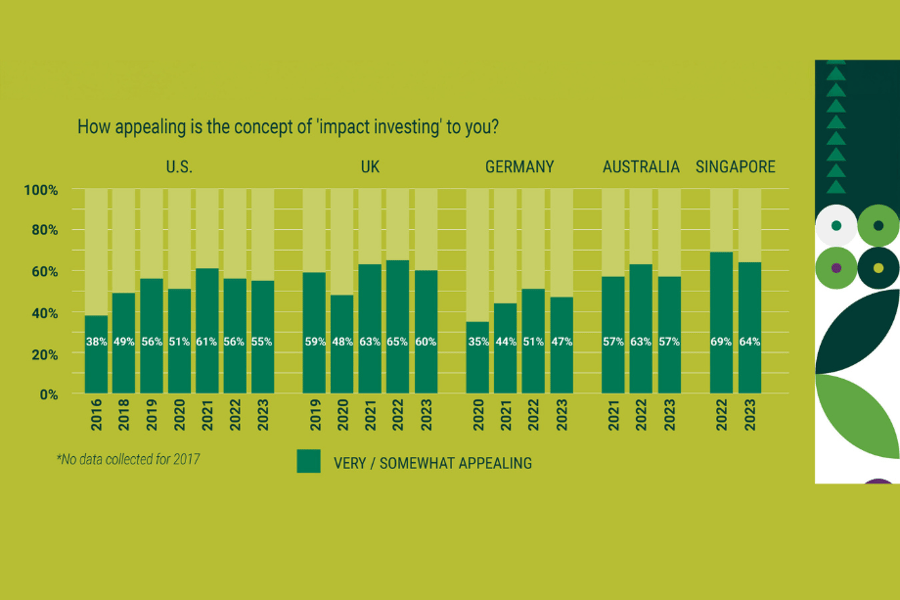

Are your clients willing to trade returns for impact? There’s a fair chance they will, according to new research from a global asset manager.
Forty percent of U.S. respondents to the seventh impact investing survey from American Century Investments said they would sacrifice higher returns if their investments were making an impact, rising 4% from the previous iteration of the study.
This puts American respondents above those in the U.K. (33%), Germany (31%), and Australia (29%) in this regard, but behind those in Singapore (47%). Across all countries polled, 67% of participants said they would sacrifice up to 10% of returns, most saying 6-10% would be their preference, but few would be willing to lose 16% or more.
But the report also found that interest in impact investing is declining across all markets included, although the U.S. saw the smallest decrease (-1%) while Australia saw the largest (-6%). While baby boomers’ interest has declined the most at -8% with Gen X at -5%, there is disparity among younger cohorts with millennials holding relatively steady at -1% but Gen Zs showing a -7% decrease.
There has also been a change in the driving cause behind impact investing. Healthcare has surpassed environment as the top concern overall.
In the U.S., greenwashing and the sustainability backlash both influenced interest in impact investing at higher levels than the prior year.
"In its earliest forms, impact investing often accepted lower expected returns to have a bigger impact, but our impact investment strategies emphasize sustainability-related attributes or outcomes in addition to delivering a financial return,” said Sarah Bratton Hughes, senior vice president and head of sustainable investing for American Century Investments. “Identifying impact-related factors that could affect a company's ability to stay competitive over the long term has the potential to add to returns. A willingness to give up as much as 10% of an expected return shows that impact investors expect to earn competitive returns and are making rational choices to realize an impact emphasis in addition to a financial return."

Integrated Partners is adding a mother-son tandem to its network in Missouri as Kestra onboards a father-son advisor duo from UBS.

Futures indicate stocks will build on Tuesday's rally.

Cost of living still tops concerns about negative impacts on personal finances

Financial advisors remain vital allies even as DIY investing grows

A trade deal would mean significant cut in tariffs but 'it wont be zero'.
RIAs face rising regulatory pressure in 2025. Forward-looking firms are responding with embedded technology, not more paperwork.
As inheritances are set to reshape client portfolios and next-gen heirs demand digital-first experiences, firms are retooling their wealth tech stacks and succession models in real time.
